Racial Justice & Healing Resources
Race-based or ethnic stress and trauma exist in the bodies of millions of people, yet many do not truly understand what they are. Below is just a small selection from the many good books, videos and other resources available to help you increase awareness and understanding of race-based stress and trauma. We invite you to explore with openness and curiosity, and go beyond this list to discover more resources by other authors and speakers.
READING
(alphabetical by author):
- Blindspot: Hidden Biases of Good People, by Mahzarin R. Banaji, Anthony G. Greenwald. Explores hidden biases that we all carry from a lifetime of experiences with social groups – age, gender, race, ethnicity, religion, social class, sexuality, disability status, or nationality.
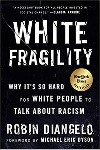 White Fragility: Why It’s Hard for White People to Talk About Racism, by Robin DiAngelo & Michael Eric Dyson. Referring to the defensive moves that white people make when challenged racially, white fragility is characterized by emotions such as anger, fear, and guilt, and by behaviors including argumentation and silence. DiAngelo examines how white fragility develops, how it protects racial inequality, and what we can do to engage more constructively. White Fragility: Why It’s Hard for White People to Talk About Racism, by Robin DiAngelo & Michael Eric Dyson. Referring to the defensive moves that white people make when challenged racially, white fragility is characterized by emotions such as anger, fear, and guilt, and by behaviors including argumentation and silence. DiAngelo examines how white fragility develops, how it protects racial inequality, and what we can do to engage more constructively.
- Waking Up White: And Finding Myself in the Story of Race, by Debbie Irving. The author shares her struggle to understand racism and racial tensions, and perspective on bias, stereotypes, manners, and tolerance.
- Diverse Bodies, Diverse Practices: Toward an Inclusive Somatics, Editor: Don Hanlon Johnson. A collection of voices from African-American, Indigenous, Latin American, and Asian embodiment traditions, and from authors whose bodies are outside the range of conventional standards of normality. In these narratives, you will find the seeds of new approaches to the transformation of the bodily roots of our social order, and a healing of the recurrent traumas of the past.
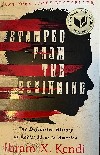 Stamped from the Beginning: The Definitive History of Racist Ideas in America, by Ibram X. Kendi. A chronicle of the entire story of anti-black racist ideas and their staggering power over the course of American history. Stamped from the Beginning: The Definitive History of Racist Ideas in America, by Ibram X. Kendi. A chronicle of the entire story of anti-black racist ideas and their staggering power over the course of American history.
- How to Be an Antiracist, by Ibram X Kendi. An essential book for anyone who wants to go beyond an awareness of racism to the next step of contributing to the formation of a truly just and equitable society.
- The Inner Work of Racial Justice: The Inner Work of Healing Ourselves and Our Communities Through Mindfulness, by Rhonda Magee. Law professor and mindfulness practitioner Rhonda Magee shows that the work of racial justice begins with ourselves.The practice of embodied mindfulness helps us to recognize our unconscious bias, and gives us the space to become less reactive and to choose how we respond to injustice.
- The Quaking of America, by Resmaa Menakem (to be released April 2022).This book will take you through somatic processes addressing the growing threat of white-supremacist political violence.
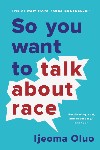 So You Want to Talk About Race, by Ijeoma Oluo. Guides readers of all races through subjects ranging from intersectionality and affirmative action to “model minorities” in an attempt to make the seemingly impossible possible: honest conversations about race and racism, and how they infect almost every aspect of American life. So You Want to Talk About Race, by Ijeoma Oluo. Guides readers of all races through subjects ranging from intersectionality and affirmative action to “model minorities” in an attempt to make the seemingly impossible possible: honest conversations about race and racism, and how they infect almost every aspect of American life.
- Caste and the Origins of Our Discontent, by Isabel Wilkerson. A masterful portrait of an unseen phenomenon in America that explores, through an immersive, deeply researched narrative and stories about real people, how America today and throughout its history has been shaped by a hidden caste system, a rigid hierarchy of human rankings.
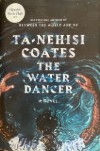 Novels Novels
- The Water Dancer, by Ta-Nehisi Coats. The dramatic story of an atrocity inflicted on generations of women, men, and children—the violent and capricious separation of families—and the war they waged to simply make lives with the people they loved.
- The Bluest Eye, by Toni Morrison, Nobel Prize-winning author. Morrison's first acclaimed novel about an African-Amercian girl who who yearns to have lighter skin and blue eyes so that she will be beautiful, so that people will look at her, so that her world will be different.
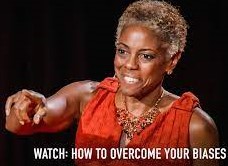 AUDIO/VIDEO AUDIO/VIDEO
- How To Overcome Our Biases: Walk Boldly Toward Them, with Verna Myers. Inclusion advocate Verna Myers looks closely at some of the subconscious attitudes we hold toward out-groups. She makes a plea to all people: Acknowledge your biases. Then move toward, not away from, the groups that make you uncomfortable.
- The Urgency of Intersectionality, with Kimberlé Crenshaw. Now more than ever, it's important to look boldly at the reality of race and gender bias -- and understand how the two can combine to create even more harm.
- Listen to 1619. (A podcast from New York Times ). An audio series on how slavery has transformed America, connecting past and present through the oldest form of storytelling. The 1619 Project was initiated with the August 18, 2029 issue of the New York Times Magazine, marking the 400 year anniversary of the beginning of slavery in the U.S. It reframes American history by placing slavery and its continuing legacy at the center of the United States' national narrative.
- Deconstructing White Privilege , with Robin DiAngelo. A talk about racism as a system of inequality, what it means to be white, and implicit bias.
- Healing Racism (Sounds True three-part webinar series), with Dr. Tiffany Jana. Conversations on healing racism on a personal, group and global level.
TRAINING & EVENTS
|

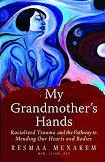 Essential for BCST practitioners:
Essential for BCST practitioners: White Fragility: Why It’s Hard for White People to Talk About Racism
White Fragility: Why It’s Hard for White People to Talk About Racism Stamped from the Beginning: The Definitive History of Racist Ideas in America
Stamped from the Beginning: The Definitive History of Racist Ideas in America So You Want to Talk About Race
So You Want to Talk About Race Novels
Novels AUDIO/VIDEO
AUDIO/VIDEO
